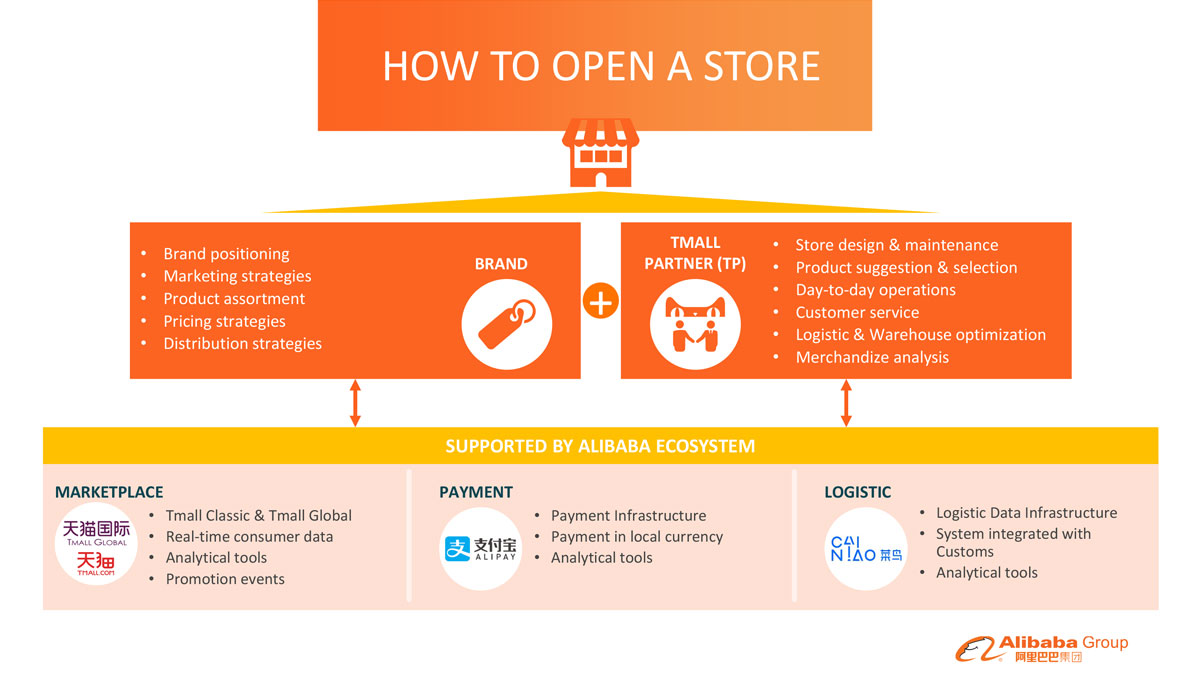Bigger Isn’t Always Better In China’s Online Health And Beauty Market
Executive Summary
Alibaba's Jennifer Wang says strategy, not brand heritage, is the key to success in China's online health and beauty market. Speaking at the recent Ceuta International conference, Wang revealed her top tips for Western brands looking to conquer China.
Health and beauty brands don’t have to be market leaders in the West to succeed in China, “you just have to have the right strategy,” according to Alibaba’s European category leader for food and health Jennifer Wang.
Addressing the 14th Ceuta International Alliance Conference in Barcelona, Spain, Wang said tailoring products to Chinese tastes and compelling marketing were more important than brand heritage when selling on Alibaba’s Tmall Global business-to-consumer e-commerce platform.
Chinese consumers – particularly Millennials – had a big appetite for purchasing imported products, she noted, with beauty and personal care, dietary supplements and mother and baby among the most popular categories on Tmall Global.
Social Media Influencers Key
Success was largely dependent on offering something different that supported consumers’ health and wellness goals, Wang explained, and creating a “buzz” on local social media channels, such as Little Red Book, the Alibaba-backed Chinese Instagram. “Social media is the way Chinese people research what they buy,” she pointed out. “They are very critical but also very willing to try new things.”
French brand Floreve became an overnight success in China through Tmall Global despite being relatively unknown in France. It had achieved this, Wang said, by tapping into Chinese consumers’ demand for skin brightening and whitening products with its range of three beauty “shots”. Floreve’s innovative glass packaging and “great marketing story” had helped the product to stand out from more established competition, she said.
Similarly, Spanish brand Bechi also found a receptive audience in China by appealing to beauty conscious Millennials with its skin health dietary supplements. While its distribution was limited in its home market, Bechi had generated “a lot of sales” on Tmall, Wang revealed, by sating Chinese appetites for skin lightening products.
“Imported supplements are so popular because they are different,” Wang commented, pointing out that the products available locally to Chinese consumers were restricted by stringent production regulations.
With 71% of supplement buyers on Tmall Global aged under 40, key to success in the market was targeting the right audience, she explained.
Reposition Products For Chinese Preferences
“So if you are a Western company you have to look at your capability to adjust your product for China and emphasize the information Chinese people want to know.”
“What is popular in China is beauty related health,” Wang explained, “this category has been growing very well in the past few years.”
“People start to take skin supplements in their early 20s. Young consumers in China really care about their appearance and invest in it.”
As the audience for these products was Millennials, marketing a beauty supplement explicitly aimed at the over 40s, however popular in the West, was not going to work in China, Wang insisted, adding: “You will need to remove that number from the packaging.”
Adapting the positioning and packaging of a product was necessary for other types of supplements as well, Wang noted.
“You might have some products which are selling really well in Europe, for example a joint health supplement for the elderly. Yes, it’s still possible to sell this product in China,” she explained, “but you have to reposition your marketing strategy.”
“You have to change the packaging image,” she advised. “Instead of a big joint you need to have a sporty or younger image for people to purchase the product.”
A fish oil product marketed in the West for brain health could be repositioned to target students studying for long hours at night while looking to sustain clear judgment and good energy levels, Wang suggested.
Protein supplements targeted at bodybuilders could be repositioned to appeal to video game players trying to maintain endurance levels while competing in online tournaments, she noted. Or firms could target those consumers looking to preserve a good level of fitness. “Protein bars are marketed to people on the go, to those who just need a snack, because the Chinese snack a lot,” she said.
Where Is A Good Place To Start?
Thinking about a brand’s target audience and how to position products to appeal to local consumer tastes were some of the first things companies needed to consider before entering China, Wang advised.
It was also necessary for firms to research who their key competitors would be, she noted, and to consider if they were prepared to invest short term or long term to establish their brand in China.
With so many factors to consider, companies needed a partner they could trust when entering the country, Wang said, pointing out that Alibaba was the leading player in China’s cross-border e-commerce market.
Over 650m consumers use Alibaba’s business-to-consumer marketplaces annually, with over 1bn products and services available across all of the firm’s platforms. In its most recent financial year, Alibaba generated gross merchandise volume of $853bn, shipping 69m packages every day through its logistics network.
“Tmall Global can give firms their first entry step to China,” Wang said.
By working with a Tmall partner, firms could receive support with defining their China strategy, she noted, and the day-to-day running of their e-commerce store (see image for Jennifer Wang’s top tips).
To be successful in China, a company had to have a dedicated and experienced partner who could manage the project, Wang explained. “Don’t give your products to a distributor and say ‘this is my lowest price’, it’s not going to work,” she advised.
“Entering China is not something you can just try out for fun. You have to have you heart in working things out in this very big and competitive market,” Wang concluded. “Be dedicated and be sure about what you want to do.”

